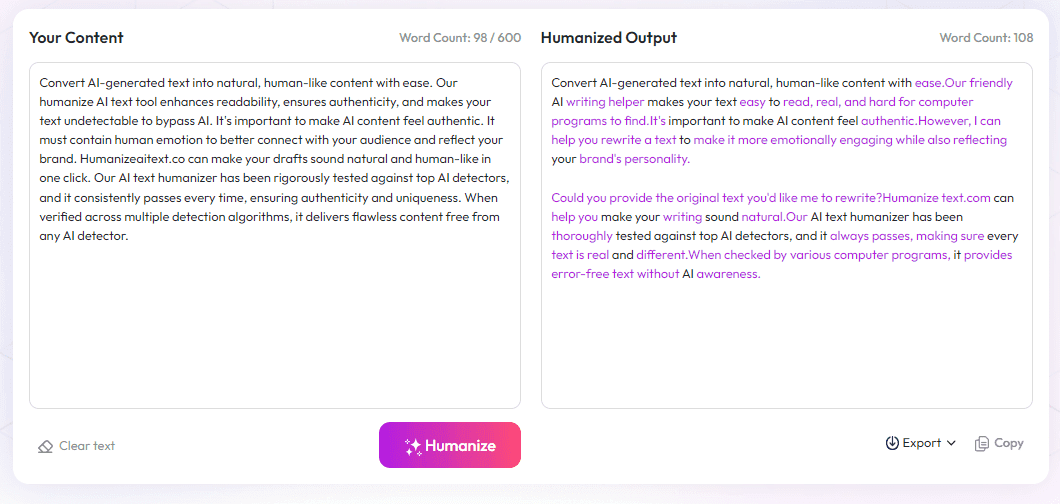Table of Contents
Finding the right online creative writing program can feel overwhelming, especially with so many options out there. You might worry about whether it's worth the investment or if you'll actually improve your writing skills. Don't worry—you’re not alone in this!
Stick with me, and I promise you'll get tips on how to choose a program that fits your goals and style. By the end, you'll have a clearer idea of what to look for so you can start writing with confidence.
In this guide, we'll break down simple steps to help you find the perfect online course to spark your creativity and keep you inspired.
Key Takeaways
Key Takeaways
- Choose online creative writing programs from reputable institutions with experienced instructors. Look at graduation rates, student reviews, and recommended rates to gauge quality.
- Consider your goals—whether it's publishing, improving specific skills, or building a habit—and pick courses that match those interests.
- Check if the format suits your schedule—live classes, pre-recorded lessons, or a mix—and look for practical benefits like feedback, mentorship, or portfolio support.
- Set clear goals and commit regular time to your courses. Participate actively, seek feedback, and join writing groups for motivation and growth.
- Overcome common challenges like procrastination by creating dedicated writing space, breaking projects into smaller parts, and celebrating progress.
- Invest in a program that fits your budget but also offers valuable learning resources; consistency and effort matter most for improvement.

What are the Best Online Creative Writing Programs?
When searching for the top online creative writing programs, it’s key to look for courses offered by reputable institutions with experienced instructors. Programs like Southern New Hampshire University's online writing degree have graduated over 580 students and come at an affordable annual tuition of around $9,900. These programs tend to have a high recommendation rate, around 69%, indicating they’re well-regarded by students.
Another highly ranked option is the University of Maryland Global Campus, with 221 graduates and a recommendation rate of 71%. They offer flexible courses that cater to busy schedules, making them suitable for a variety of learners.
Liberty University also offers online creative writing programs with a focus on practical skills, boasting 146 graduates and a recommendation rate of 75%. Their courses often include mentorship opportunities and portfolio development to help students break into publishing.
For those interested in programs with impressive median salaries post-graduation, Weber State University's online creative writing program recently saw graduates earning median salaries of $46,871. Their recommendation rate hits 90%, showing strong student satisfaction.
Oregon State University stands out with an 87% recommendation rate and a tuition of about $11,760 annually. They offer specific courses on fiction, poetry, and non-fiction, helping writers develop their style and craft in a supportive online environment.
The global market for online creative writing courses is growing rapidly, reaching an estimated USD 3.97 billion in 2024, according to recent industry reports. This surge reflects increased demand for flexible learning options that cater to aspiring writers worldwide.
Looking into different programs, consider what fits your goals, budget, and preferred teaching style. Platforms like MasterClass feature lessons by bestselling authors such as Margaret Atwood and Neil Gaiman, offering insights directly from industry legends. Meanwhile, sites like Coursera provide university-led courses with in-depth critiques and structured curricula, perfect for learners wanting a comprehensive experience.

How to Evaluate and Choose the Right Program
Choosing the best online creative writing program isn’t just about the rankings or price.
Start by identifying your goals—are you aiming to publish a novel, improve your poetry, or simply build a writing habit?
Look for programs that offer courses aligned with your interests, whether that’s fiction, non-fiction, or genre-specific classes.
Check the instructors’ backgrounds—experienced writers with real publishing creds can provide better guidance.
Consider the program’s format—are classes live, pre-recorded, or a mix? Do you prefer more flexibility or structured deadlines?
Review student feedback and alumni success stories to get a sense of how well the program supports its writers.
Make sure the program offers practical benefits like portfolio reviews, networking opportunities, or mentorships.
Finally, balance your budget with the curriculum quality—sometimes paying a bit more can give you access to more valuable resources.
Tips for Making the Most out of Your Online Creative Writing Course
Once you select a program, it’s time to get serious about your learning.
Set aside dedicated time each week to attend classes, complete assignments, and work on your projects.
Engage actively in class discussions; sharing your work and giving feedback helps improve your craft.
Join writing groups or forums associated with your course to build connections and stay motivated.
Don’t be afraid to experiment with different styles and genres—you never know what might spark your next big idea.
Seek out feedback beyond the course—beta readers or writing clubs can give fresh perspectives.
Keep a journal or writing log to track your progress and ideas; small daily habits build up over time.
Use additional resources like writing prompts or industry articles to supplement your learning.
Remember, persistence is key—writing is a craft that improves with regular practice, not marathon sessions.
Common Challenges and How to Overcome Them
Online courses are flexible, but they can also present hurdles like procrastination or feeling isolated.
Set clear goals for each week to stay on track and avoid falling behind on assignments.
Create a dedicated, distraction-free space for your writing practice and coursework.
If motivation dips, revisit your reasons for starting—to keep your passion alive.
Join online communities or social media groups where fellow writers share their wins and struggles.
Don’t hesitate to ask instructors or peers for guidance if you hit a stumbling block.
Break large projects into smaller, manageable tasks to prevent overwhelm.
Celebrate small wins to stay encouraged—every paragraph written is progress.
Lastly, remember that setbacks are part of the process; use them as learning opportunities rather than reasons to give up.
Wrapping Up: Is an Online Creative Writing Program Worth It?
The short answer is yes—if you pick the right program and put in consistent effort.
A good online course can sharpen your skills, expand your network, and even open doors to publishing opportunities.
It’s a chance to work with experienced instructors and get feedback on your work that you might not find on your own.
However, the value depends on your dedication, goals, and choosing a program that fits your style.
Think of it as an investment in your craft—paying attention and practicing regularly pays off over time.
If you’re serious about writing, exploring options like learning from industry pros or structured university courses can make a big difference.
Remember, no course can teach you how to write—only consistent effort and passion do that.
So, weigh your options, set realistic goals, and turn your writing dreams into reality.
FAQs
Consider factors like program focus, instructor experience, student reviews, and your writing goals. Comparing curriculum structures and tuition costs can help find a program that aligns with your interests and budget.
Look for courses that offer diverse writing styles, interactive feedback, peer collaboration, and experienced instructors. Clear objectives and flexible schedules also enhance your learning experience.
Many programs provide peer reviews and instructor feedback through forums, assignments, and live sessions. Look for courses that emphasize constructive critique to improve your skills.



